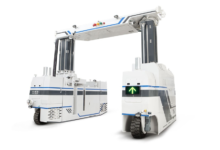Mutf_In: Icic_Prud_Ener_Qjge8q

Mutf_In: Icic_Prud_Ener_Qjge8q exemplifies a strategic approach to energy sustainability by integrating advanced technologies in energy efficiency. Its emphasis on renewable resources and smart grid management reflects a growing trend in the energy sector. The utilization of data analytics enhances energy distribution, yet the broader implications for stakeholders and regulatory frameworks remain to be fully explored. This foundation raises critical questions about the future of energy infrastructure and its adaptability to emerging challenges.
Understanding the Core Principles of Mutf_In
Mutf_In operates on a set of core principles that guide its functionality and application in the energy sector.
Central to these principles are energy conservation and the utilization of renewable resources.
Innovative Technologies Driving Energy Efficiency
As the demand for energy efficiency intensifies, innovative technologies are emerging as critical components in transforming energy systems.
Smart grids facilitate real-time energy management, enhancing reliability and reducing waste.
Additionally, renewable integration technologies enable seamless incorporation of solar and wind resources, optimizing energy distribution.
Together, these advancements empower consumers and organizations towards a more sustainable and independent energy future, driving significant efficiency improvements.
The Role of Data in Sustainable Energy Practices
While the transition to sustainable energy practices relies heavily on innovative technologies, data serves as the backbone that supports these advancements.
Data analytics enables precise monitoring of energy consumption and enhances predictive modeling for optimizing renewable resources.
Future Implications for the Energy Landscape
What will the future energy landscape look like as the integration of renewable resources accelerates?
Enhanced policy frameworks will drive investment trends, shaping market dynamics towards sustainable solutions. This energy transition promises reduced environmental impact, fostering innovation and competition.
As renewable energy adoption increases, stakeholders must adapt to evolving regulations and technologies, ensuring a resilient infrastructure that supports a liberated and sustainable energy future.
Conclusion
In a world increasingly saturated with technological advancements, Mutf_In: Icic_Prud_Ener_Qjge8q’s commitment to energy conservation might seem ironically quaint. As it champions renewable resources and smart grids, one might ponder whether humanity’s greatest challenge is not the lack of innovation, but rather the reluctance to embrace these solutions fully. While the initiative stands as a beacon of hope in the energy sector, it also underscores a profound irony: the more we innovate, the more we must confront our own inertia.







